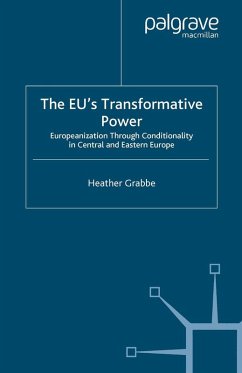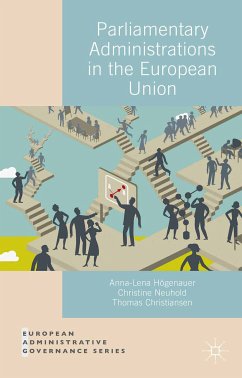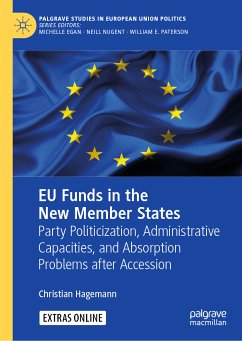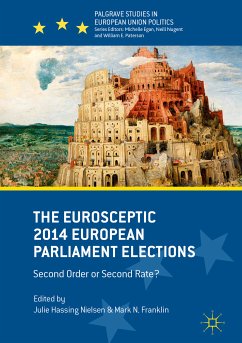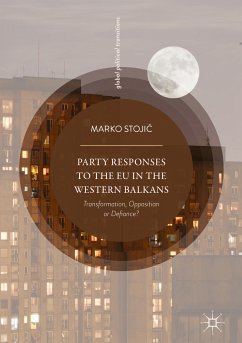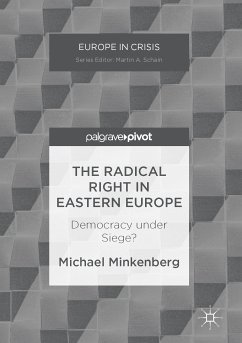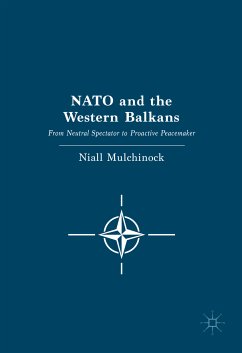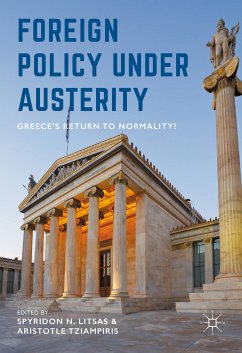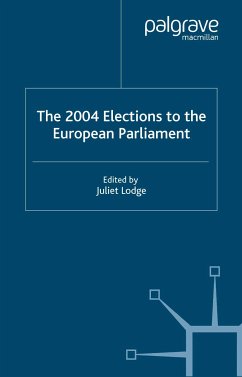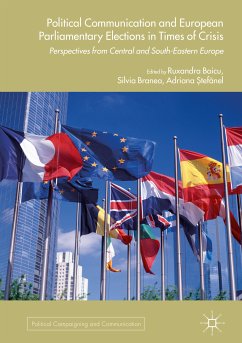
Political Communication and European Parliamentary Elections in Times of Crisis (eBook, PDF)
Perspectives from Central and South-Eastern Europe
Redaktion: Boicu, Ruxandra; Stefanel, Adriana; Branea, Silvia
Versandkostenfrei!
Sofort per Download lieferbar
88,95 €
inkl. MwSt.
Weitere Ausgaben:

PAYBACK Punkte
44 °P sammeln!
Political Communication and European Parliamentary Elections in Times of Crisis (eBook, PDF)
Dieser Download kann aus rechtlichen Gründen nur mit Rechnungsadresse in A, B, BG, CY, CZ, D, DK, EW, E, FIN, F, GR, HR, H, IRL, I, LT, L, LR, M, NL, PL, P, R, S, SLO, SK ausgeliefert werden.



